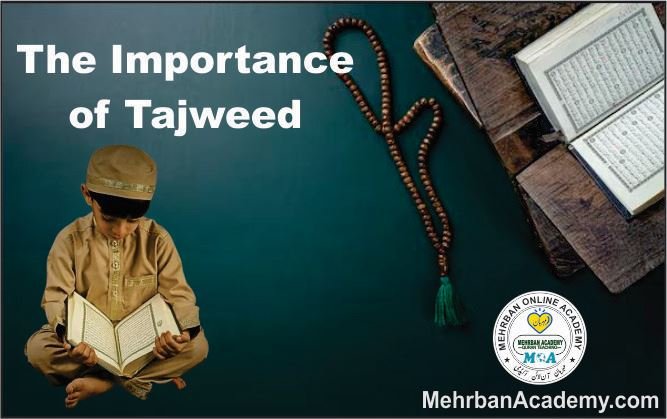The Importance of Tajweed – Preserving the Beauty of the Qur’an

The Importance of Tajweed – Preserving the Beauty of the Qur’an
The Qur’an is not just a book to be read — it is a divine speech, the literal Word of Allah ﷻ, revealed to the heart of the Prophet Muhammad ﷺ through the angel Jibril (عليه السلام). Its recitation is an act of worship, and every letter brings countless rewards. But this recitation must be done with care, correctness, and respect. That is why Tajweed is not optional — it is essential.
What Is Tajweed?
Tajweed means to make better or to perfect. In Qur’anic terms, it refers to the set of rules that govern how each letter is pronounced, how it interacts with other letters, and how sounds are delivered with clarity, fluency, and beauty.
Tajweed ensures that:
Letters are pronounced from their correct makhārij (articulation points)
Attributes of letters (ṣifāt) are maintained
Stretching (madd), nasalization (ghunnah), and stopping rules are followed
The recitation reflects the way Prophet Muhammad ﷺ recited the Qur’an
Why Is Tajweed Important?
1. To Fulfill a Sacred Trust
The Qur’an was revealed with Tajweed. Jibril (عليه السلام) taught it with perfect pronunciation, and the Prophet ﷺ conveyed it to his companions with precision. Reciting the Qur’an without Tajweed risks distorting the meanings, especially in Arabic, where a change in one letter can change the entire meaning.
2. To Show Proper Respect to the Qur’an
Mispronouncing the words of the Qur’an is not just a linguistic error—it is a spiritual loss. The Qur’an deserves to be recited with excellence, reflecting our love, reverence, and submission to Allah ﷻ.
3. To Increase Spiritual Connection
When recited properly, the Qur’an flows beautifully, touches the heart, and penetrates the soul. Tajweed gives life to the words. It transforms reading into a deeply moving spiritual experience.
4. To Protect the Qur’an for Future Generations
Tajweed is part of the oral preservation of the Qur’an. It ensures that generation after generation recites the Qur’an just as the Prophet ﷺ did. This sacred science protects the purity and authenticity of Allah’s final revelation.
Common Mistakes Without Tajweed
Without Tajweed, many people unknowingly:
Mix up similar-sounding letters (like ع and أ, ص and س)
Skip necessary elongations (madd)
Omit ghunnah (nasal sounds) in places like noon mushaddadah
Read in a robotic or broken flow, missing the rhythm and beauty
These mistakes may lead to loss of meaning, reduced reward, and spiritual disconnection.
Who Should Learn Tajweed?
Everyone!
Whether you’re a child starting to read, an adult reconnecting with the Qur’an, or someone fluent in recitation — learning and improving Tajweed is a lifelong journey. Even seasoned huffaz and qaris continue to refine their tajweed.
Learn Tajweed – The Right Way
At Mehrban Academy, we offer one-on-one Tajweed classes for children and adults. Our expert male and female teachers ensure each student learns the rules practically, patiently, and properly — with personal attention.
You’ll learn:
Arabic letter pronunciation
All major Tajweed rules (ikhfa, idgham, iqlab, madd, etc.)
Practical application through guided recitation
How to correct past mistakes
Classes are online, flexible, and taught in both Urdu and English.
Conclusion: Let Your Tongue Honor the Words of Allah
Reciting the Qur’an is an honor. But reciting it correctly is a responsibility.
If you love the Qur’an, show that love by learning how to recite it as it was revealed. Tajweed is not just about rules—it is about beauty, connection, and devotion.
📲 WhatsApp: +92-321-5083475
🌐 www.mehrbanacademy.com
#Tajweed #LearnQuranProperly #MehrbanAcademy #QuranWithTajweed
Lorem Ipsum


